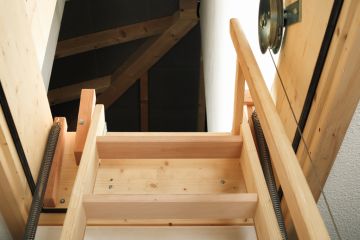'I have not even been in the house yet': using technology to buy and sell before and during coronavirus

When house hunter Steven Bonomini saw the pictures of his soon-to-be new Peakhurst home online, it was love at first swipe.
Bonomini lives in Queensland and was searching for an investment property that could double as a base for him in Sydney.
He saw the property listing and knew the street and the area in Sydney’s southern suburbs, so he felt confident about purchasing without setting foot in the door.
In early March, he was bidding down the phone – to a representative from the real estate agency – in an online auction.
“This was probably a week before the big lockdowns came into effect,” Bonomini said.
“I have not even been in the house yet.”
The Peakhurst co-listing agent Mark Somboli, co-director of Belle Property St George, was well prepared for this scenario.
Somboli’s agency had conducted about half a dozen auctions online before COVID-19 forced sweeping industry change.
“We started with the idea of having the facilities that people could be bidding from home, internationally or interstate, if the event arose that they didn’t want to come to the auction, so we had everything in place for that, and that is what happened with Steven,” he said.
“It was a simple case of registering him for auction, and then letting him participate in the auction, which was done over the phone.”
Somboli said transparency and increased interaction with the marketplace were major motivations for introducing web auctions, even prior to the outbreak.
He sold a Rockdale home recently, before a scheduled auction, to an author who had returned from overseas and was self-isolating.
“She saw the property online, and the normal video that we do – walking through, showing all the saleable features – saw the photos and did the research,” Somboli said.
“We arranged a Sunday inspection with WhatsApp, walked her through with the WhatsApp, she organised her own building and pest inspection, did the due diligence and bought unconditionally before auction.”
Somboli said a challenge for agents was to avoid filming multiple videos of a property for prospective buyers who requested it but who were not yet in a serious position to follow through and ink a deal.
He has introduced more modest but intricate videos on each listing, showing close-ups of hot water services, cooking features, and fixtures and fittings, instead of the glossy marketing films of the past.
“Agents will be running around for 20 or 30 minutes, several times a week, and that is where agents are getting really excited about WhatsApp and FaceTime, but I think that is a fad,” he said.
“So what we are doing are really detailed walk-throughs; instead of that 30-second quick, slow-motion, agent-in-a-sexy-suit kind of video, what we are doing is a bit more raw, showing ‘these are the light fittings, these are the skirting boards, these are picture rails’, so it takes about six or seven minutes to do.
“That video is now a staple [of the listings]. It’s not showing me in my best suit. It’s very raw. Then, if we want to go one-on-one, we can step into those kind of negotiations.”
Somboli said in the long-term, he did not expect online auctions to replace the traditional in-person method, as it was difficult for auctioneers to read the body language of bidders, and sense if they needed more time or were out of contention.
We recommend
We thought you might like
States
Capital Cities
Capital Cities - Rentals
Popular Areas
Allhomes
More
- © 2025, CoStar Group Inc.







